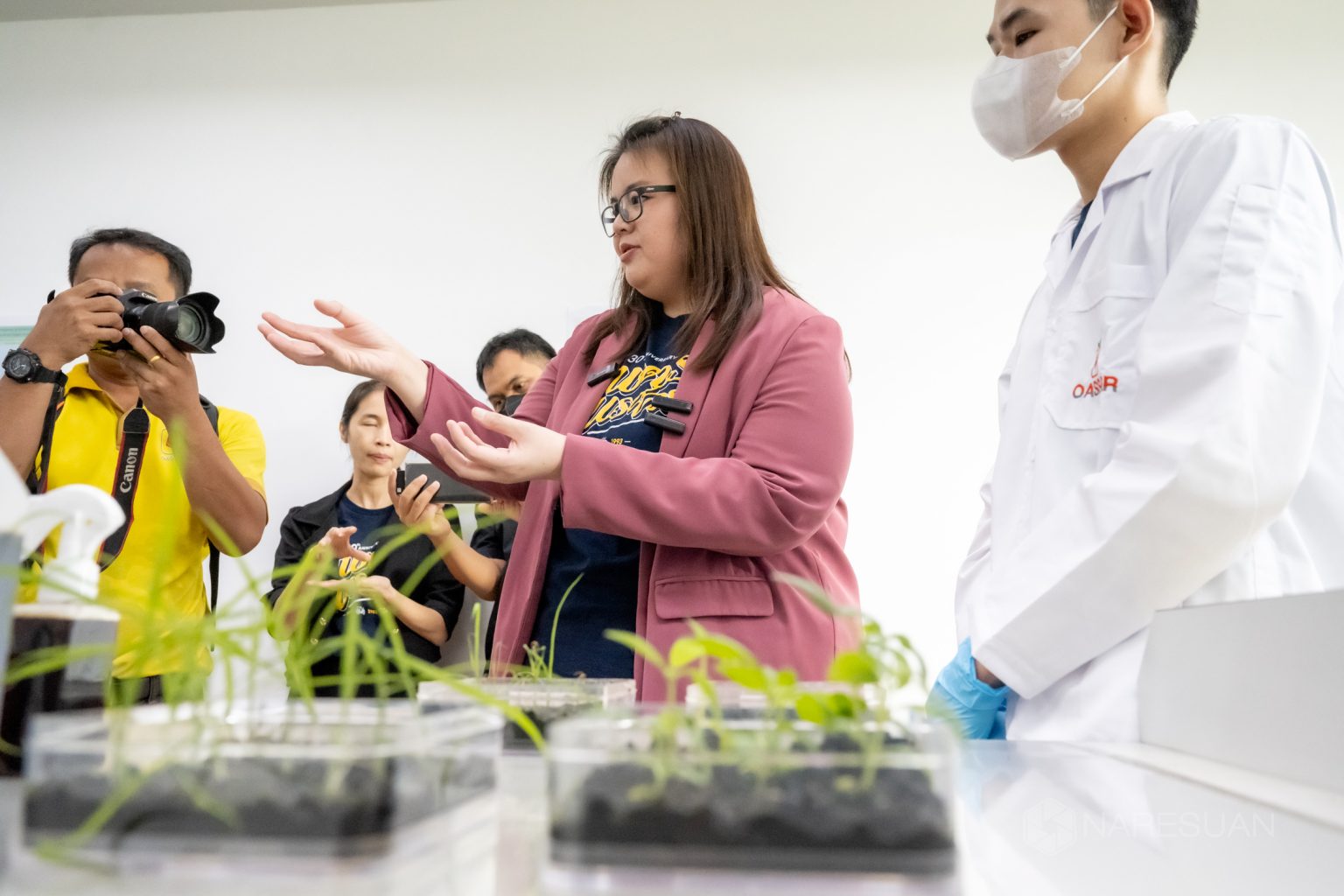Dr. Nichakorn Condee, a distinguished lecturer in the Department of Natural Resources and Environment at the Faculty of Agriculture, Natural Resources, and Environment, Naresuan University, spearheads a groundbreaking invention – a “bioherbicide” created from agricultural waste through bacterial processes. This environmentally friendly solution is non-toxic, minimizes residues, and aligns with the principles of sustainable development, particularly in accordance with the United Nations’ Sustainable Development Goals (SDGs). The invention is now poised for further advancements and eventual commercialization.
Since 2018, Dr. Condee and her team of researchers have collaborated with key players in the agricultural industry to harness the potential of agricultural waste and by-products from processing various crops, including pineapple pulp, soybean meal, durian peel, coconut pulp, pressed coconut oil pulp, rice bran oil squeezed pulp, and more. These materials serve as both a food and energy source for bacteria responsible for producing biosurfactants. The ultimate objective is to realize sustainable development in Thailand, contributing to SDGs by curbing hazardous waste, reducing incineration and landfill usage, and replacing harmful chemicals with biodegradable “biological herbicides” that prioritize user and consumer safety.
The core components of the biological herbicide product are derived from the fermentation of agricultural waste and by-products alongside bacteria, ensuring safety and environmental friendliness. This innovative product is engineered to match the efficacy of chemical herbicides currently dominating the market. Presented in the form of a microemulsion solution with encapsulated active substances at the nanoscale, the bioherbicide reduces the contact angle on weed leaves, promoting even distribution, adherence, and rapid penetration into the weed tissues. Notably, it can function effectively under challenging conditions such as high pH, temperature, and salinity. The versatility of bacterial strains used in the biosurfactant production process allows for varied and exceptional properties.
Unlike conventional leaf binders synthesized from petroleum or chemically extracted from plants, the bioherbicide eliminates the associated risks of toxicity and residue. This positions it as a promising option for organic farming, fostering a safer and more sustainable approach to weed control.
The bioherbicide is now ready for further development towards commercialization. For additional information, please contact the Technology Transfer and Intellectual Property Management Division at 0 5596 8727.

![]()



